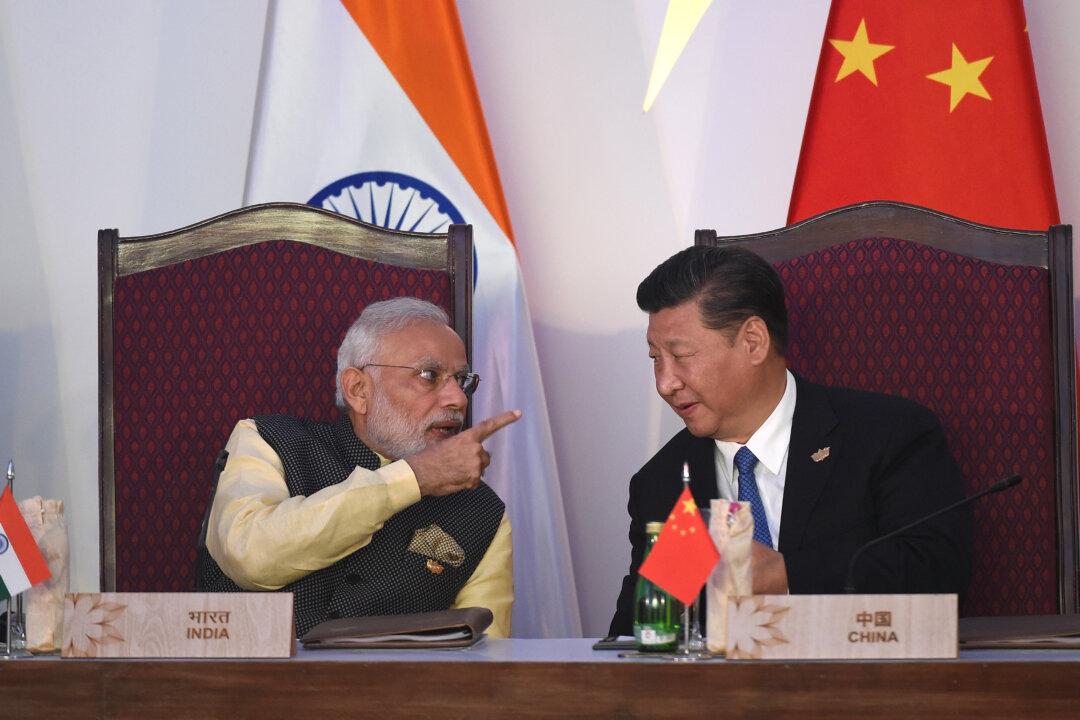Indian media has reported that 5,000 troops from China’s People’s Liberation Army (PLA) have amassed in a remote region along the India-China border. India diverted more of its own troops to match China.
India and China Deploy Thousands of Troops Along Northern Border After ‘Violent Face-Off’
India and China have rejected US President Donald Trump's offer to mediate

India Prime Minister Narendra Modi (Left) gestures while talking with China's President Xi Jinping during the BRICS leaders' meeting with the BRICS Business Council at the Taj Exotica hotel in Goa on October 16, 2016. PRAKASH SINGH/AFP/Getty Images
|Updated:



